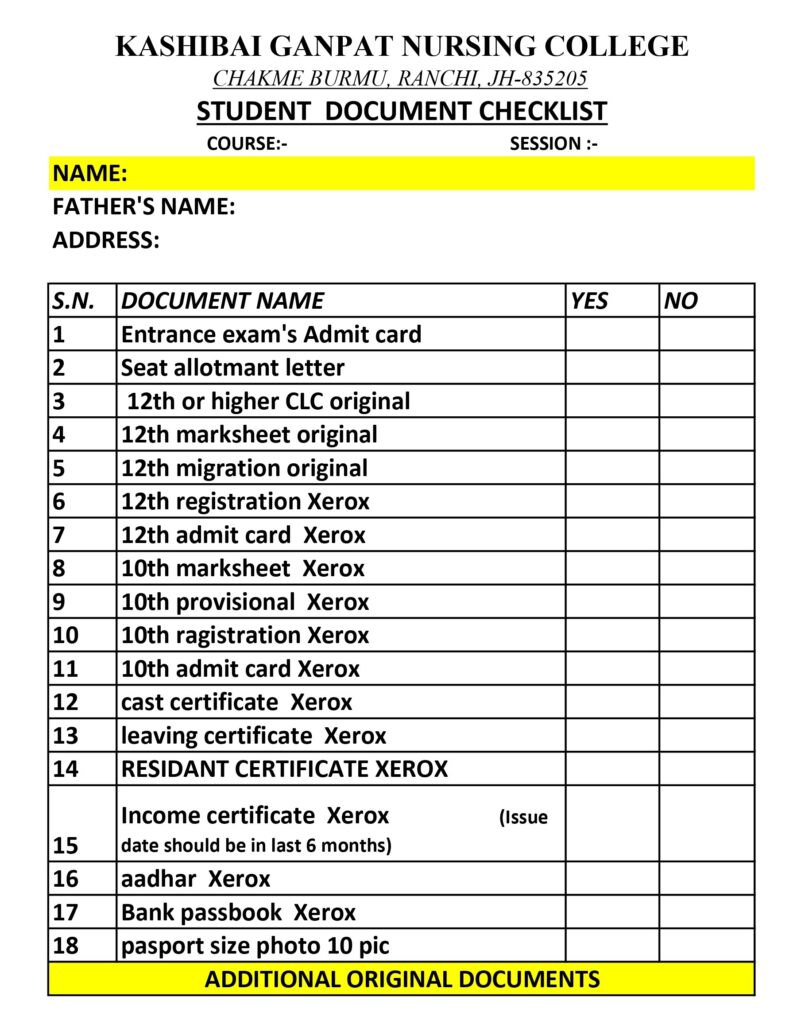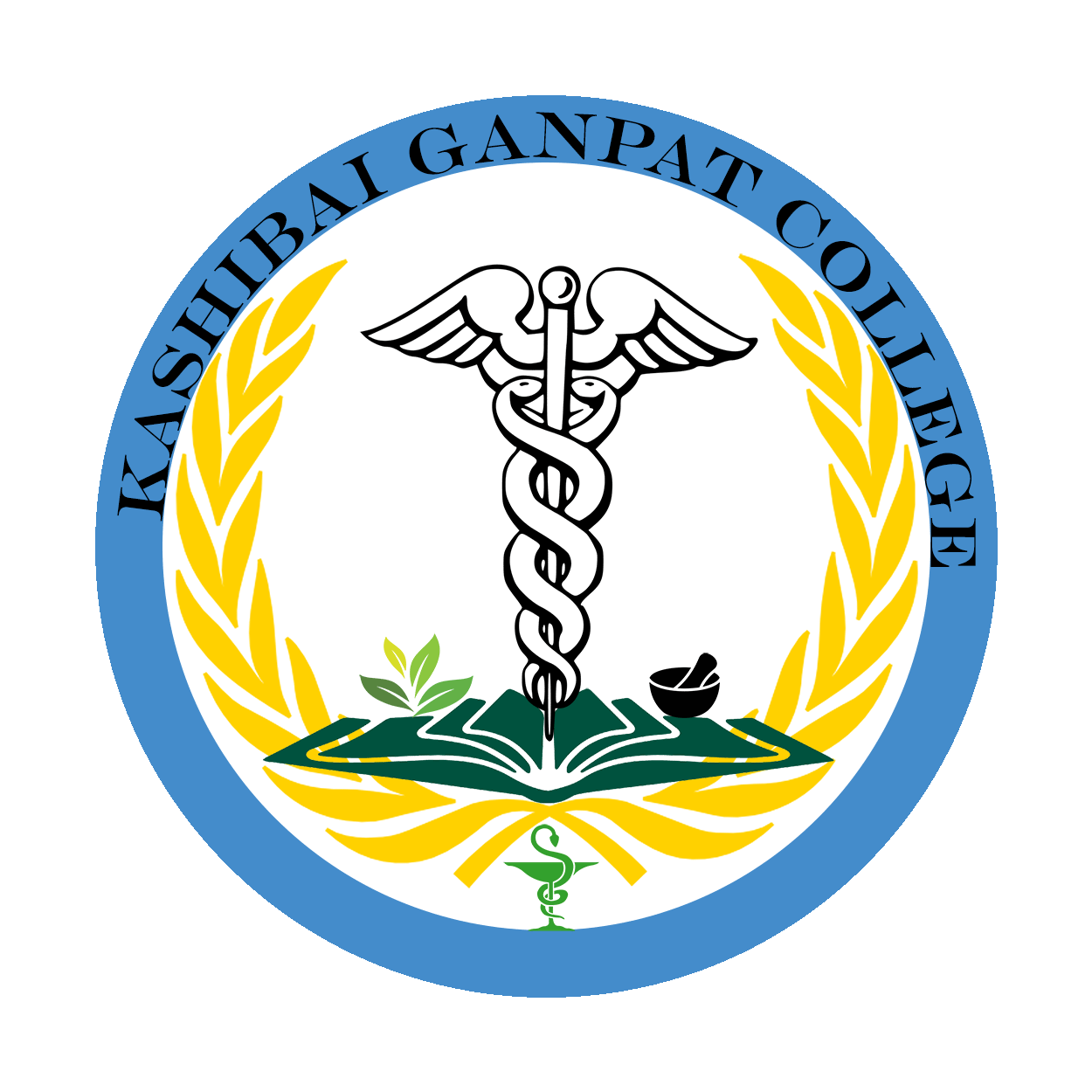Bachelor of Science in Nursing (B.Sc Nursing)
| Duration | 4 years (8 semesters) |
| Eligibility | 10+2 Pass (PCB with English) |
| Form Fee | Rs. 2,000 (non-refundable) |
| Exam Fee | N/A |
| Admission Fee | Rs. 20,000 (non-refundable) |
| Tuition Fee | Rs. 92,500/Year |
NOTE:
1. Hostel & Mess Fee Rs. 30,000/- Per Semester (HOSTEL IS NOT COMPULSORY)
2. Uniform Rs. – 4000/- One Time
3. Registration fees and exam fees are excluded from this.
4. Form fee & Admission Fees are non-refundable.
5. Transportation Fee if avel
Required documents checklist:

Course Information
BSc Nursing is a 4-year undergraduate course that will prepare you for a career in nursing. You will study subjects like anatomy, microbiology, biochemistry, psychology, and more through theoretical and practical aspects. After completing this course, you can practice as a nurse in healthcare settings.
DETAILED TUITION FEE STRUCTURE
Here is a professional, college-website–ready post for B.Sc Nursing:
Scope After B.Sc Nursing
Bachelor of Science in Nursing (B.Sc Nursing) is a comprehensive undergraduate program designed to develop highly skilled, knowledgeable, and compassionate nursing professionals. The course combines theoretical education with extensive clinical training, preparing graduates for leadership roles in healthcare. After completing B.Sc Nursing, students have excellent career opportunities in India and abroad.
Career Opportunities After B.Sc Nursing
B.Sc Nursing graduates are in demand across government, private, and international healthcare sectors.
Government Sector:
- Staff Nurse / Nursing Officer
- Medical Colleges and Teaching Hospitals
- District and Civil Hospitals
- AIIMS, ESIC, Railways, Defence, and PSU hospitals
- Primary Health Centres (PHC) and Community Health Centres (CHC)
- National Health Mission (NHM)
- Public Health Departments
Private Sector:
- Multi-specialty and super-specialty hospitals
- Corporate hospitals and healthcare chains
- Nursing homes and specialty clinics
- NGOs and international healthcare organizations
- Home healthcare, critical care, and hospice services
- Medical colleges (as clinical instructors)
Higher Education Options After B.Sc Nursing
B.Sc Nursing opens the door to advanced education and specialization:
- M.Sc Nursing (various specializations)
- Post Basic B.Sc Nursing (for GNM holders)
- Ph.D in Nursing
- Postgraduate Diploma in:
- Critical Care Nursing
- Neonatal Nursing
- Psychiatric Nursing
- Operation Theatre & Emergency Care
- MBA / MHA (Hospital & Healthcare Management)
- Public Health & Research programs
Graduates with higher qualifications can work as Nurse Educators, Nursing Administrators, Clinical Specialists, Researchers, and Healthcare Leaders.
Salary Prospects
- Fresh B.Sc Nursing Graduate: ₹25,000 – ₹40,000 per month
- Experienced Nurses: ₹50,000 – ₹80,000+ per month
- Nursing Officers in the Government Sector: As per the pay matrix with allowances
Higher education and specialization significantly increase earning potential.
International Career Opportunities
B.Sc Nursing has excellent global demand. Graduates can work abroad after clearing the required licensing and language exams such as IELTS, OET, NCLEX, etc.
Popular destinations include:
- United Kingdom (UK)
- United States of America (USA)
- Canada
- Australia
- New Zealand
- Middle East countries
Conclusion
B.Sc Nursing is a prestigious and future-oriented program that offers strong employment prospects, leadership opportunities, global recognition, and professional growth. It is an ideal choice for students seeking a rewarding career in healthcare with opportunities for higher studies and international exposure.
I
